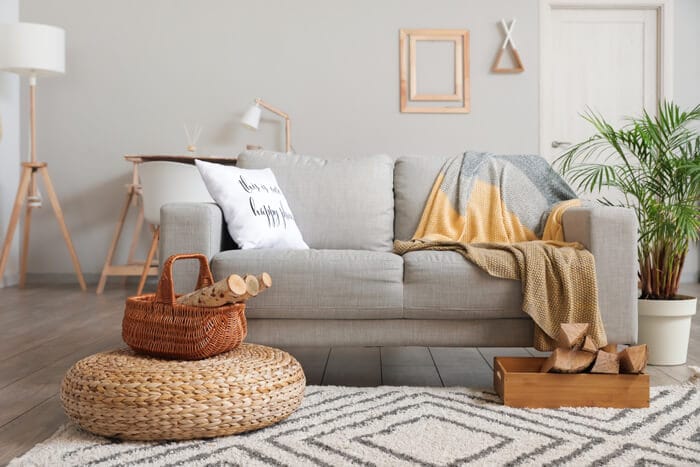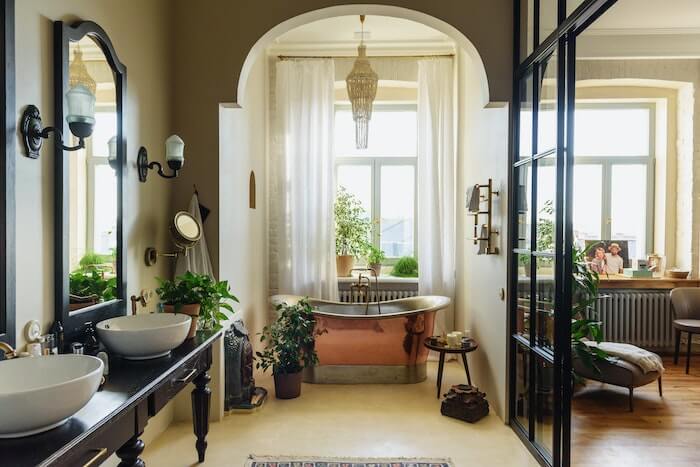A Step-by-Step Airbnb Hosting Guide [Hints & How-Tos]
![A Step-by-Step Airbnb Hosting Guide [Hints & How-Tos]](/content/images/size/w1200/wordpress/2021/07/airbnb-hosting-guide-pic5-.jpeg)
Eager to learn how to become a great host on Airbnb and set your business up for success? From choosing the best property for renting out to improving your ranking in the search results, read our comprehensive Airbnb hosting guide as it covers all the aspects of a thriving vacation rental business.
While short-term renting remains a lucrative business investment for prospective hosts,the vacation rental industry has become saturated. With 4 million registered Airbnb hosts and 5.6 million listings around the world, it’s definitely become harder to compete in the Airbnb business, especially for new hosts.
To stand out and reach potential guests, you need to create an unforgettable experience from the start. That’s why iGMS created the ultimate Airbnb hosting guide so you can get off the right foot and ensure you’re all set up for success. Let’s dive right in.
1. What to Do Before You Start Your Airbnb Hosting Journey
2. Preparing Your House For Airbnb Guests
3. Creating Your Airbnb Listing
4. Attracting and Maintaining Constant Bookings
5. Becoming an Outstanding Host
What to Do Before You Start Your Airbnb Hosting Journey
So you have decided that you want to start hosting on Airbnb and rent out your property to guests — that’s great! But before you get started, you will need to do a fair bit of planning and research before you begin your Airbnb hosting journey. Find out what steps you should follow first below:

1. Find the best location
Firstly, you need to make sure that your potential Airbnb property is in an ideal space for hosting guests. Ask yourself the following questions when you begin to look at potential properties to invest in:
- What kind of property do I want to rent out? (a house, cottage, apartment, etc.)
- Is this property in a city, town, or the countryside?
- Is the area surrounding the property a safe place for guests to stay in?
- What attractions can be found near the property that will be a drawcard for guests?
- Does the property’s location attract much foot traffic throughout the year?
- How many competitors are in the property’s surrounding area?
Next you’ll need to look for external services to evaluate the earning potential of your target property. These hosting calculators assist all sorts of professions to ascertain the viability of an investment property, this includes a real-estate investor, a property manager.

2. Research your competition
Tying into the final question above, it’s essential to research your competitors before taking the plunge of starting your own Airbnb business. After all, you might find out that your area is filled with properties that are just like yours, in which case you need to hone in and define what will set you apart from the competition. Consider these points:
- Who are my competitors? (Hot tip: you can filter out properties on Airbnb by your area to find your competitors or use software tools such as AirDNA and Mashvisor to get more in-depth data on them)
- How many competitors are in my property’s surrounding area?
- What do my competitors offer in terms of property and amenities?
- What do my competitors charge in terms of pricing and rate per night?
- What unique selling points can I offer to stand out?
- Can I realistically compete with the other rentals in my area?

3. Learn short-term rental laws and regulations
Many cities and countries have imposed restrictions and even bans on vacation rentals, which directly impacts hosts looking to set up their businesses there. To avoid paying hefty penalties or fines, make sure your property adheres to the regulations and laws of your city or state:
- What city or state do I want to operate my Airbnb business in?
- What regulations apply to my city or state?
- What state or federal tax am I required to pay?
- What expenses (if any) can I write off as tax-exempt business expenses?
Discover all the ins and outs of Airbnb regulations for your business
4. Consider fees and estimate expenses
Another important issue for hosts to take into account relates to fees and expenses necessary to maintain their house. Aside from vacation rental and state-applicable taxes, you will also need to pay a hosting fee to Airbnb every time a guest books your home.
On top of this, there are a certain amount of once-off and fixed expenses you will need to pay for property maintenance. To help speed up this process, here are some questions you should answer when estimating your expenses:
- Do you need to make any renovations to the property to increase its appeal?
- Do you need to make any repairs to ensure it’s in perfect working condition?
- Do you need to buy new furniture or appliances for your Airbnb?
- How will you handle the cleaning of the property between each reservation?
- How will you handle repairs and maintenance between each reservation?
Get an in-depth walkthrough of how to make a successful vacation rental investment

5. Research your target audience
Your target audience will help you define the kind of hosting experience you want to offer. So it’s worthwhile taking time to define and research your ideal type of guest. There are a number of questions you can ask that will help you do this:
- What is the size and type of your Airbnb? (Is it a house or an apartment? How many bedrooms and bathrooms does it have?)
- How many people can you comfortably host in your space?
- Where is it located? (Is it in the suburbs, near a beach, in the middle of the city?)
- Who lives in the surrounding community? (Is it mostly families, students, working professionals, etc.?)
Once you have jotted down answers to these questions, you can begin to conceptualize the kind of guests that your house will most appeal to.
- Decide if you will cater to families with kids
If you decide to cater to families with children, take note that you will need to take extra precautions to ensure your space is safe for children, especially those who are under three years old.
Learn more about how to create an impeccable family-friendly vacation rental
- Consider making your property pet-friendly
Offering a pet-friendly Airbnb brings both challenges and benefits to hosts. You’ll need to decide if you feel the additional income you can earn is worth the extra cleaning and maintenance. Keep in mind that you can cover the costs of hosting a guest with pets by having them pay a pet fee
Access the pros and cons of pet-friendly short-term rentals and learn how to get your property ready for pets
- Target domestic travelers
Recently, more and more people are opting for local and closer-to-home travel destinations. Thus, it’s in your interest to also market your home to domestic travelers. Some things you can do to make your Airbnb more appealing to local travelers and Airbnb website users include:
- If you have the room, create an office space for remote workers and digital nomads.
- Offer fast and free Wi-Fi.
- Arrange a comfy outdoor area.
- If you have a free parking spot, advertise it more explicitly in your listing.
Learn how to market your vacation rental property to domestic travelers
6. Draw up your business plan
A comprehensive business plan is a cornerstone of successful hosting on Airbnb. Your plan will help you define your short and long-term goals, and potential roadblocks, as well as specify the resources you need and where you currently fall short in them. A good place to start would be to think over these points:
- What goals do I want to achieve with my Airbnb business?
- By when do I want to achieve these goals (try to be realistic with timelines)?
- How will I manage my day-to-day operations?
- What tools and resources will I use for my management?
- What USPs do I have that set me apart from my competitors?
- What are the KPIs I should monitor to ensure my business’ health?
- What do I envision for the company in 5 years?
Get a step-by-step breakdown of how to write a vacation rental business plan
7. Get vacation rental insurance
Although it’s not mandatory to have specialized insurance for your home, it’s highly recommended for hosts to get it. If you are looking for basic coverage when you host, Airbnb does provide Host Guarantee protection for covering some assets. However, this host guarantee cover is limited and does not apply to items that go missing from your space, as well as external situations, for example, damage from extreme weather.
Additionally, standard property insurance generally does not cover vacation rentals as short-term renting is considered a business. When deciding if you should get coverage for your house, keep these questions in mind:
- What is the combined value of the furniture and appliances in my Airbnb?
- Are there any high-value items in my home, for example, expensive artwork or jewelry?
- Is my home in an area that experiences extreme weather (such as blizzards, hurricanes, etc.)?
- Am I planning to rent out my property for the entire year or only part of the year?
Get an understanding of why it’s important to have vacation rental insurance for your business
Preparing Your House For Airbnb Guests
Once you’ve decided that being an Airbnb host is the right choice for you, you can start preparing and sprucing up your space to welcome your first guest. This is an essential process that you need to complete before you even think of creating an Airbnb listing.
1. Furnish your rental
Your furnishings are a big part of the decision-making process of prospective guests. If your furnishings clash with one another or look unappealing, it might put guests off from booking with you. Before you make any style decisions, remember that you’re styling your space for your target guest and not you personally.
When deciding on how to best furnish your Airbnb, take into account the following points:
- Your property’s location (you can use inspiration for your property’s interior design by looking at its surroundings)
- Your target guest (for example, if you cater to digital nomads, don’t forget to arrange a comfy working area)
- An atmosphere that you would like to create with your lighting and accessories
- Practicality and comfort (as furniture in vacation rentals is susceptible to premature wear and tear, purchase high-quality items that will provide a decent level of comfort to your guests).
Learn how to furnish your vacation rental home for a definitive guest experience
2. Add amenities and supplies to your rental
A vacation rental that offers more amenities and supplies for guests is more likely to enjoy consistent bookings. Keep in mind that you don’t need to spend a fortune installing amenities. Here are a few hacks to help you get started:
- Play to the strengths of your property (if you have outdoor space, you could provide barbeque facilities or a fire pit. If you have an apartment in the city, a balcony can be a perfect addition for that extra special touch)
- Smaller amenities can make a difference (a smart TV, high-speed Wi-Fi, an espresso machine, etc.)
- Don’t forget about supplies for each room (it can be helpful to work from a checklist).
Get inside information on stocking the very best vacation rental supplies

3. Prepare and clean your rental
Before listing on Airbnb, you need to make sure your house is in pristine condition for your guests. If it doesn’t look spotless, your guest might be put off and write a negative review, which can hurt your Airbnb host rating.
On top of that, it also looks unprofessional to have an Airbnb that doesn’t offer hotel-grade cleanliness. Having a spotlessly cleaning listing will help attract more bookings and lead to a successful Airbnb listing. Thus, to help you stay competitive, keeping your space spick and span is a must. Things to include in your cleaning checklist are:
- Vacuuming all rugs and carpets
- Deep cleaning the sofas and pillows
- Mopping all floors
- Dusting and wiping down all surfaces and countertops
- Sanitizing all surfaces with a disinfectant
- Washing and replacing all sheets and pillowcases
- Washing and replacing all used towels
- Replenishing supplies in every room.
Aside from deciding how you will handle cleanings, you also need to decide if you will charge guests a cleaning fee or not. There’s no right or wrong answer when it comes to maintenance-related fees, as each host’s property is unique.

A good place to start is to gauge the space of your house and the time required to clean it. A one-bedroom apartment is much easier to clean than a 4-bedroom house with a garden.
Dive into vacation rental cleaning for keeping your property sparkling clean
Creating Your Airbnb Listing
With your business plan set up and your rental in immaculate condition, you’re free to start the exciting process of creating your first Airbnb listing! However, there’s more to creating a listing than you might initially think. If you’re aiming to rank higher in Airbnb’s SERP results, there are a few steps you should complete to improve your chances.
1. Publish your Airbnb listing
Creating an Airbnb listing is completely free but does require a bit of logical planning. The simplest way to do it is to follow the steps listed below:
- Include an eye-catching title
Your listing will need a title that will jump out and catch the attention of guests browsing Airbnb’s search results. This may sound like an impossible task, but with some careful phrasing and a keen eye, you can position your listing for more hits with a surefire title. Here are some tips for writing a knockout title:
- Don’t mention your home’s basic features (such as a 2-bedroom apartment), instead, feature its key selling points (a 2-bedroom apartment with stunning seaside views)
- Update your title to mention any new renovations or upgrades
- You can also update your title to include any current packages or specials you might be running
- Use abbreviations to shorten words and optimize the character count of your title
- Don’t go over the 50-character limit, or your title will be cut off in the search results.
Get the full how-to for writing winning Airbnb tiles for your listings
- Add photos to your listing
Photos are an essential part of your listing, as they will be the first thing that catches the eye of potential guests. For this reason, it’s a good idea to invest time and money in your pictures to ensure they look professional and attractive. Here are some quick tips for striking photos:
- Use a photography camera to take your listing photos
- Shoot from a corner to ensure your space doesn’t look small or cramped in the pictures.
- Take interior as well as exterior photos of your property
- If you’re not a professional photographer or don’t have the tools, consider hiring one. It’s worthwhile ensuring that your Airbnb listings have high-quality photos that make an impact.
- Use free online editing tools to add more color and contrast to your pictures, but don’t go overboard with saturation and contrast; otherwise, they may look unrealistic.
Learn how to take great Airbnb photos for your vacation rental listing

- Write a listing description
New hosts might think they can skip writing a description for their listing if they have top-notch photos of their property. The reality is your Airbnb’s photos and listing description work hand in hand to generate guest reservations.
Your listing description is your chance to market and sell your rental to your target audience. Mention all the positives, but also be honest about any negatives, as you don’t want to create a false impression in guests’ eyes. Here are some ways you can write a winning description:
- Use memorable and engaging language in your description (instead of writing “nice,” “beautiful,” or “comfortable,” write “delightful,” “gorgeous” or “cozy”)
- Mention your home’s unique selling points, for example, having an indoor pool or space for outdoor dining. You can also mention nearby tourist attractions, such as walking distance to the beach, or around the corner from the metro station.
- Describe the kind of experience your space offers to guests (perhaps, your Airbnb is a writer’s retreat or an artist’s haven, a lover’s getaway, or a fully-equipped space for business travelers. Keep your target guest in mind here)
- To encourage more bookings, remember not to make your listing description sound like too much of an advert (avoid hard-selling jargon like “special offer — don’t miss out!” or “book now before it’s too late!”)
- Get verified
To reduce the possibility of fraud and scams, Airbnb has introduced an ID verification process for both hosts and guests. It ensures that everyone is who they say they are by providing ID verification to prove it. Providing an ID to get verified is not mandatory, however, it’s highly recommended to do this if you are planning to host on Airbnb.
Getting verified has a number of benefits for you as a host. The most important is receiving a “Verified ID” badge on your profile, which sends a signal to potential guests that you are credible and trustworthy. This, in turn, helps to attract more reservations as guests feel comfortable knowing they are booking with a verified Airbnb host.
Get to grips with how to verify your Airbnb host profile
Follow this step-by-step guide for how to create an outstanding Airbnb listing
2. Set up your Airbnb host profile and account
The next thing you should do is create and complete your hosting profile. Having a host profile is beneficial for several reasons. Firstly, it signals to Airbnb that you are a legitimate host who is active on the platform.
Secondly, having a detailed Airbnb host profile also shows potential guests that you are an honest and trustworthy person. If a guest finds your listing on Airbnb, they are likely going to look up your host profile to gauge whether it’s a scam or not. Your profile could be the difference between a guest booking with you or a competitor. Therefore, it’s well worth the time to get your profile set up. Some things you can do include:
- Adding a recent photo of yourself
- Writing about yourself in your profile description
- Mention some of your hobbies and interests to personalize your profile
Discover how to write an outstanding Airbnb profile
3. Price your vacation rental
When selecting a price for your vacation home, keep in mind that finding the perfect price can be a balancing act. Hosts who price their rental too low may attract irresponsible or unsavory guests. Hosts who price it too high will likely drive target guests toward your competitors.
Airbnb has its own inhouse pricing service. However, Airbnb’s pricing recommendations tend to be slightly lower than other dynamic pricing services. Even if you have just started on Airbnb and have only just started accepting guests, you will need to explore the idea of dynamic pricing before you accept your first guests.
At the same time, you need to make sure the price you select for your booking fee covers all your operating costs and still allows you to generate a profit. Additionally, you should be changing your pricing according to your high and low season, and special deals when you offer them. It might seem like a monumental task, but you’ll get the hang of pricing with a bit of practice. Some Airbnb profile pricing strategies you can implement include the following:
- Decide whether you want to opt for more bookings at a lower rate per night or fewer bookings at a premium rate (a useful tip is to look at your Airbnb’s type and location to help you decide this)
- Implement a dynamic pricing strategy (this is a popular strategy that utilizes data and metrics to drive pricing for income growth)
- Closely monitor your competitors to keep track of their price adjustments.
Learn about effective Airbnb pricing strategies to boost your earnings

4. Set your house rules
When it comes to Airbnb house rules, the best policy for hosts is to be open and honest with guests. Before you start accepting bookings from your first guests, you need to decide on the ground rules for your listing. Including your rules as part of your listing description is ideal, as it shows guests what you expect from the beginning. They can then decide if the rules suit the kind of stay they are looking for. This can prevent misunderstandings from happening further down the line. In addition to placing them in your Airbnb listing description, you should also place a copy of your house rules in your property. Some commonplace rules many Airbnb hosts are related to:
- Check-in and check-out times for guests
- Breakages and damages
- Noise levels
- Cleaning and general cleanliness
- Parties and extra guests
- Safety
Discover how to write vacation rental house rules for your guests
5. Choose your cancellation policy
It’s important to choose a cancellation policy that’s in line with the management strategy you want to use, as well as the kind of stays you offer.
If you opt for the Flexible cancellation policy, you can potentially earn more reservations, but the downside is that guests can cancel for free up to 24 hours before their booking begins. Using the Moderate policy protects hosts against last-minute cancellations. However, with this policy, a cancellation rebate will still be lower than the booking fee.
The Strict policy does not allow guests to cancel less than a week in advance without forfeiting their full booking fee. This will help you to attract more serious guests, but it can also result in far fewer reservations than if you had the Moderate or Flexible policy.
If you allow long-term stays, it makes sense to choose the long-term cancellation policy.
Take a closer look at how Airbnb cancellation policies work
6. Arrange your check-in and check-out times
If you’re looking to maximize your reservations, you need to make sure your Airbnb house is cleaned and prepared quickly and efficiently between bookings, which necessitates guests knowing exactly when they need to check out.

Ensuring your guests know when they should check in and check out is essential for the smooth running of your vacation rental business. Not only will it make your hosting job easier, but it will also contribute to a better overall guest experience. Therefore, you should clearly state your guest’s check-in and checkout times in their booking confirmation email and house rules.
On your side as the host, you need to make the check-in process as smooth as possible for guests. You’ll either need to be there yourself or have someone in your place to give your guests their keys. Due to the COVID-19 pandemic, more and more guests are choosing to book short-term rentals that offer self-check-in options, which allows them to arrive when they choose and adhere to social distancing measures.
For checking out, on top of letting your guests know what time, you should also leave clear instructions for guests regarding their check out. Some examples of rules include:
Before checking out, please:
- Empty your trash bags into the large bin outside
- Place used towels in the wash basket in the main bedroom
- Close and secure all windows and doors
- Wash and pack away all dishes
- Switch off all appliances
- Do a last check to make sure you haven’t forgotten to pack any items.
Get a full understanding of how Airbnb self-check-in works and how to set it up
Attracting and Maintaining Constant Bookings
With your listing optimized and live on Airbnb, you’re all set to start receiving reservations! But is a comprehensive listing enough to maintain a consistent booking rate? The answer is partly, but not entirely. Your Airbnb listing is what will attract initial bookings, but you need to do a bit more work to receive repeat and consistent bookings.
1. Employ vacation rental automation
Utilizing automation in your property management strategy is the best investment for short and long-term success. Not only does automation ensure that all your routine tasks are taken care of, but it also streamlines and speeds up all your processes.
This results in better, faster service, which can benefit your booking rate, reviews, and host rating. For instance, iGMS is a vacation rental software that utilizes automation to help hosts run their businesses on autopilot. With iGMS, you can:
- Synchronize reservations across the top vacation rental platforms to prevent double bookings
- Automate your messaging for an immaculate response rate and organize your messages within a single inbox
- Create review templates and time reviews to go out according to triggers
- Manage cleaning and maintenance tasks remotely and track their completion
- Receive payouts and create invoices in minutes via Stripe integration
- Manage direct bookings through the direct booking widget
- Use integrations with dynamic pricing tools to set competitive prices for your properties.
2. Improve your listing’s ranking in SERP results
It’s no secret that Airbnb is an incredibly competitive platform with thousands of new hosts and listings joining every day. The listings that occupy the first page are far more likely to get booked than the Airbnb listings on the third or fourth page. Because of this, it’s in your best interest to push your listing’s ranking higher on Airbnb SERP pages to improve your visibility and booking rate. Some important things that can help your Airbnb ranking are:
- Keeping your Airbnb calendar up to date
- Updating your prices frequently
- Respond promptly to messages from Airbnb guests
- Using Instant Book
- Obtaining as many 5-star reviews as possible
Improve your listings’ rankings by diving into Airbnb SEO best practices
3. Promote and market your listing
To take your visibility one step further and reach an even wider audience beyond Airbnb, you need a cohesive marketing strategy on your side. Marketing your listing may seem like an arduous task, but it’s essential to draw more eyes to your listing and maximize your income.
You’re also likely to get left behind if your competitors are actively marketing their Airbnb listings and you’re not. However, marketing your properties doesn’t need to be a chore. By following the suggestions below, you can harness a multi-approach marketing strategy that’s sure to bring results for your short-term rentals.
Use a focused marketing strategy
The first thing you should do is put yourself in the shoes of your target audience. What is their age group, and what platforms do they use to find information or entertainment? By keeping your target guest in mind, you can begin planning and tailoring your marketing strategy towards them.
You can also take a look at what your competitors are doing to promote their listings but keep in mind that your marketing goals and needs might be a bit different from theirs. Use their methods for inspiration, but don’t make your strategy a carbon copy of theirs.
Find out how to craft your own Airbnb marketing strategy
Utilize social media
Using social media is a great way for hosts to expand their audience reach and attract more reservations. But not all platforms perform equally well in terms of short-term rental marketing. Platforms, such as Instagram and Pinterest, tend to perform better due to their visual nature.
That being said, it can still be worthwhile to create a page for your Airbnb listing on Facebook, as you can still market it on targeted Facebook groups and utilize hashtags to find the right viewers for your Airbnb hosting business content.
Another tip for increasing brand awareness on social media is to partner with local businesses and companies in your area. You can partner with these companies and offer a special discount if guests book with them via your promotion. By doing this, your partners will share your collaboration on all their social media channels. This increases your brand visibility and is a great way to support your local community.
Create your own business website for direct bookings
Creating your own website is another way to drive traffic to your listings. A website is important because it creates the opportunity to receive reservations via direct bookings. It also helps to legitimize your business as an Airbnb host and make it look more professional. Some things you can employ to help your website stand out are:
- Creating a brand logo for your company and placing it on your website
- Using your brand colors on every page of your site
- Adding eye-catching photos from your listings
- Adding links to all your social media channels
- Utilizing a payment processor to safely process online payments
- Providing an “About me” section so potential guests can get to know you a little better.
4.Offer discounts and special packages
During your low season or if you are experiencing a prolonged quiet period, a way to encourage more reservations is to offer discounts and limited special packages. These reductions in your prices can help increase your income when it’s not your high season.
Offering special reductions should assist you during slower periods. However, they should not be the driving force behind your revenue. If you find you are not receiving many bookings throughout the year (especially during your high season), you may need to take another look at your pricing strategy.
Some common examples of discounts used by Airbnb hosts include:
- Weekday discounts (a reduction in your price per night for bookings during the week)
- Special packages or discounts centered around a holiday (Valentine’s Day, Easter, etc.)
- Low-season special offers (e.g., a reduction in your rate per night in winter if you own a beach house or a summer special if you own a property near a ski resort).
Becoming an Outstanding Host
With your house set and your listings live, you’re nearly ready to join the Airbnb hosting community. But you can’t expect to get far if your host skills are lacking in key areas. Guests aren’t just looking for the best Airbnb house or the most eye-catching listing.
They want to feel assured that they are booking with a host who cares about them. In the Airbnb business, t’s not enough to be a good host; you need to become an outstanding host to elevate the guest experience:
1. Be responsive to guest messages
Being proactive when it comes to your messaging works in your favor for two reasons. Firstly, responding quickly to any messages and inquiries that come in leaves a good impression on guests. The faster you respond to a guest’s message, the more likely they are to book with you than if you responded a day later.
Secondly, maintaining a high response rate on Airbnb signals that you are an active host on the platform, which can improve your SERP rankings and help you to obtain Superhost status.
Learn how to create an Airbnb message strategy to perfect your guest communication
2. Create a vacation rental welcome book
You want your guests to feel comfortable and at home in your Airbnb. After all, a comfortable stay is a more enjoyable stay which increases your chances of getting great reviews and repeat bookings. At the same time, you also want to communicate rules and instructions to guests without coming across as stern and unfriendly. The best solution for both situations is to create a welcome book for your guests.
A welcome book is a comprehensive handheld guide to your property that will help your guests navigate it during their vacation. It contains information that is useful and relevant to guests, such as:
- A welcome note from you as their host
- Check-in and checkout instructions
- A detailed list of house rules for your property
- General dos and don’ts when at your house
- Instructions for using appliances
- Your phone number, your security company’s phone number, and other emergency contacts
- A list of recommended local attractions with up-to-date prices.
Follow this guide for how to create a vacation rental welcome book for your guests
3. Get more five-star reviews
When it comes to reviews, it’s not just about the number; it’s also about the quality. These days, guests place a high value on the reviews and feedback of past guests. Because of this, the reviews that host’s collect on Airbnb can have a big impact on whether or not a guest decides to book with them.
Aside from helping you secure future bookings, great reviews can also be very helpful to hosts. No host ever wants to receive a negative review, but they can help pinpoint areas where you can improve your service.

If you do receive a bad review, make sure you publicly respond to it. Let the guest know you have taken note of their feedback and thank them for taking the time to let you know. This signals to past and future guests that you do care about their guest experience and are dedicated to improving your service.
A great way to encourage guests to write a positive review for you is to write one for them first. It can also act as a reminder if guests have forgotten to leave you a review.
Get pro tips on how to write stellar Airbnb reviews for your guests
4. Achieve Superhost status
Becoming an Airbnb Superhost is a sure way to attract more reservations and repeat guests. Superhost status is awarded to hosts who have been recognized by Airbnb for providing outstanding service to guests. While you won’t become a Superhost overnight, there are certain criteria you have to meet that you can begin working on:
- Host at least ten trips throughout a year (keeping Instant Book activated can help you achieve this faster)
- Maintain a 90% or higher response rate
- Have a cancellation rate of 1% or lower
- Obtain a host rating of at least 4.8 or higher
- Have 80% of your reviews be 5-star reviews
After becoming an Airbnb Superhost, you will receive a Superhost badge that Airbnb adds to your listings and profile. This helps guests easily identify you as a Superhost, which will attract guests and make them more inclined to book your property.
Explore the ins and outs of Airbnb Superhost status and how to achieve it
5. Never stop learning
Finally, if you want to be an excellent host, recognize that there is always something more to learn in the short-term rental market. The vacation rental industry is always evolving, and new trends replace old ones at the drop of a hat. Whether you’re just starting out in Airbnb rentals or you’re an Airbnb hosting veteran, if you want to be exceptional, you have to be willing to keep an open mind and commit to being a lifelong learner. Many hosts fail to do this and Airbnb users notice when listings fall behind and start to fail to attract guests.
Ways to stay on the pulse of the hosting community include:
- Subscribing to Youtube channels focused on vacation rental management
- Bookmarking host forums and blogs
- Attending online events such as webinars and virtual meet-ups on platforms like Clubhouse
- Joining host groups on Facebook and LinkedIn.
The great thing about these resources is that they are completely free and are used by like-minded hosts who share similar goals and objectives.
Be ahead of the curve by checking out the top property management blogs and vacation rental hosting forums
Conclusion
Great Airbnb hosting takes time and effort to master, but, with consistent work and dedication, anyone can do it. To make your journey to success faster and easier, employ automation. Vacation rental software and other ProTech tools have become irreplaceable helpers that save time on property management and keep your business under control with less hassle.
If you haven’t tried automating your vacation rental business yet, it’s high time you did (as this is what your competitors are already doing!).





![Your Monthly iGMS Roundup [February 2020]](/content/images/size/w600/wordpress/2020/02/igms-roundup-feb-2020-cover.png)

